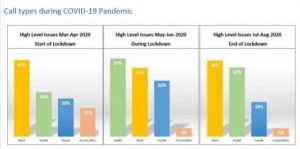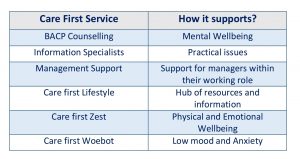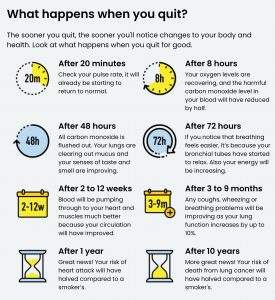The COVID-19 Pandemic has affected people and businesses across the world in different ways.
People have dealt with the emotional brunt of uncertainty and lockdowns and businesses have had to face disruption to their business never experienced before.
Whilst most businesses have gone quiet, furloughed staff and shut up shop during the pandemic, Care first have been busy ramping up operations to support those in need during these testing times.
There have been some interesting trends appear during the pandemic in terms of calls and what people are using the service for, some of which we can explain and some we cant.
Take a look for yourself below!
Most people would think that at the start of the COVID-19 Pandemic with the cases being as high as they were and lockdown measures coming into place that a lot of people would be using the Care first support line. This was not the case initially, in fact, call numbers went down during this time, only to start rising again when the COVID-19 cases were low and lockdown began to ease.
There could be a number for reasons why this may be and it is hard to say for sure; but with everyone in lockdown with family around them it could’ve been hard to find the privacy to call the line, or possibly that people were able to spend more time with their family and get that support from them.
Now on the cusp of a second wave of COVID-19 cases we are seeing quite the opposite. We are seeing a huge spike in calls as the COVID-19 cases rise. Again, it is difficult to say for sure why this is, perhaps anxieties have built up over the months and where we were all hoping we were over the worst of it, for many the reality of a second wave has hit home harder and intensified these anxieties.
We can see that at the start of lockdown Work related stresses were at the forefront of people’s minds, most likely down to the unknown of what will happen with their jobs regarding furlough and how their organisation would cope during the lockdown, which also resulted in calls regarding practicalities to rise whilst people were looking for advice.
During the easing of lockdown most calls were concerning health, most likely due to the anxiety of society opening up again after lockdown. Work related calls reduced in numbers; we suspect this is because people had settled into whatever steps their organisation took to deal with the pandemic and were most likely given re-assurance addressing the uncertainty and anxieties that they had initially. Family and relationship related calls also increased during this period, as throughout lockdown those relationships could have intensified in such a high stress situation which maybe created some issues, or quite the opposite and people had been struggling with the isolation of lockdown.
Coming out of lockdown, family and relationship related calls dropped to the lowest they had been since lockdown began, either issues had been resolved during lockdown, or being able to leave the house more relieved some pressure from an intense experience. Work and health remained the most frequent call types with work being just 3% ahead, this could be down to return to work anxieties.
Constantly changing scenario
With the situation with COVID-19 ever evolving, call trends and frequencies will change on a constant basis depending on the stresses imposed and experienced by us all across the UK. Care first are continuously supporting huge numbers of people dealing with a large range of different issues.
To ensure all calls are answered by a human being and the appropriate support is offered, we adapt our staffing as we are able to predict call numbers by taking into account a large array of factors. The factors range from School or public holidays, through to external factors such as COVID-19 case numbers and even down to the Moon cycle! Care first is committed to providing the best support to anyone and everyone that need it, especially during such unpredictable times.
More information
If you would like to view the Webinar on ‘How the Pandemic has affected how people have accessed support’ is being delivered live on Thursday 29th October at 12:00pm, please use the following link to register for this session – https://attendee.gotowebinar.com/register/1341637692638584078
If you are unable to join the webinar live, a recording of the session can be accessed using the same link above after the webinar has taken place.
If you feel you may need some support, you can contact Care first. Care first is a leading provider of confidential, professional counselling, information and advice services. All employees are eligible to use Care first, our services include; telephone counselling, information services and online support. Call Care first on the Freephone number provided by your organisation and you can speak to a professional in confidence.




